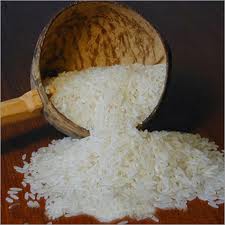 NEW DELHI--Indian traders likely have to adjust downward prices of rice shipments to Iran following a devaluation of the currency rial against the U.S. dollar over the past month, trade executives said Monday.
NEW DELHI--Indian traders likely have to adjust downward prices of rice shipments to Iran following a devaluation of the currency rial against the U.S. dollar over the past month, trade executives said Monday.Iran receives rice exports from India in exchange for crude oil. As the rice exports to Iran and the crude-oil prices are quoted in U.S. dollars, the devaluation of the rial would mean they become more expensive and fewer Iranian importers may be able to afford to buy, in turn lowering the demand for Indian rice.
India would likely lower prices in response to this fall in demand, given that Iran is one of the main buyers of Indian basmati rice, traders say.
"I don't know who is going to pay that many more rials for Indian rice," said a senior Indian rice trade executive, who did not want to be identified. "A price correction is inevitable."
Iran's currency, the rial, has fallen by more than 50% against the dollar amid escalating sanctions by the U.S. government over Iran's nuclear program. The Iranian rial is currently quoting in the range of 26,000-27,000 to the dollar, Indian executives said.
Prices of Indian basmati rice have declined to around $1,200 per metric ton from $1,300 over the past fortnight, exporters say.
"Indian prices would likely correct further," said R.S. Seshadri, a director at Tilda riceland Pvt. Ltd., a New Delhi-based exporter. Exporters say prices would likely decline to $1,100 per ton in about a month.
Iran is expected to account for about a third of India's basmati rice shipments of around 3.0 million tons in the financial year ending March.
The two countries launched a payment mechanism last June to skirt Western sanctions against Iran by essentially exchanging Iranian oil for a range of Indian goods, including rice, soymeal and pharmaceuticals.
Indian oil importers deposit rupees into an Indian bank, while rice traders and other exporters withdraw funds once their shipments have been received. Iran has the rupee equivalent of $4 billion in cash at India's state-owned UCO Bank, where India deposits money to pay for crude oil.
In recent weeks, Indian rice shippers to Iran have been facing payment-related delays, Indian trade executives say.
Official letters from an Iranian bank authorizing the release of payments for rice have been taking time because of bureaucratic delays, including slow issuance of health certificates for the rice, they say.
The payment issues are yet to be resolved, they added.
By The Wall Street Journal
The Iran Project is not responsible for the content of quoted articles.











